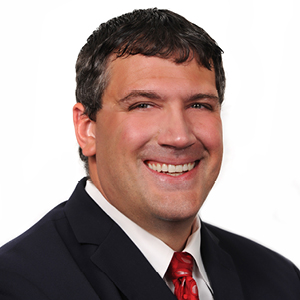A Conversation with The Buckeye Institute’s Greg R. Lawson
Feb 03, 2025The Giving Review published this conversation.
The Buckeye Institute research fellow Greg R. Lawson is an expert on Ohio’s budget, local government, state and local taxes, and education and education funding, among other things. He serves as Buckeye’s liaison to the state policymakers. Prior to joining Buckeye, he was a government-affairs professional, before which he was a Legislative Service Commission fellow for the Ohio General Assembly.
Last December, Buckeye released a report that Lawson researched and wrote, Beware the Trojan Horse of Rulemaking Nongovernment Organizations. The report describes how nongovernment organizations (NGOs) in Ohio present a unique regulatory threat disguised as an innocuous Trojan gift horse. It follows and expands upon previous, similar work done by the Texas Public Policy Foundation.
For state policymakers and those agencies tasked with implementing policy, according to the report, “Rulemaking is no easy task. Enter the well-meaning experts of” NGOs to provide advice and guidance to legislators and administrators
with model legislation and pre-packaged uniform rules ready to adopt. NGOs offer state agencies and lawmakers subject matter expertise, insight into the needs and preferences of regulated parties, and ready-made regulations ready to be signed. … But NGOs also operate opaquely, often with little public scrutiny, and their seemingly benign proposals can plant seeds of bureaucratic overreach and undermine state sovereignty with backdoor plans for default national agendas that bypass state protocols.
In Beware the Trojan Horse of Rulemaking Nongovernment Organizations, Lawson focuses on the role of three industry-specific groups in Ohio. They are the North American Securities Administrators Association, the National Association of Insurance Commissioners, and the National Fire Protection Association & International Code Council.
The report’s recommendations include: higher levels of transparency on the part of both state regulatory bodies and the NGOs with which they cooperate or on which they rely; enhanced state-policymaker scrutiny of national NGO-inspired model laws and retaining, and exercising, the ability of state policymakers to modify them; and expanded public input to state policymakers about regulatory rules, to balance the NGOs’ national industry perspectives.
Lawson was kind enough to join me for a recorded conversation last month. The just more than 17-and-a-half-minute video below is the first part of our discussion; the second is here. During the first part, we talk about the report and how rulemaking NGOs can serve good purposes, but should operate transparently and be subject to the scrutiny of democratically elected policymakers.
“To be fair, these organizations are not inherently bad organizations and I think that’s something I want to say at the very front end,” Lawson tells me. “There’s a lot of utility to what these groups do and what they are.
“A lot of people say, well, this is really negative report on them, and I think the way I’d rather characterize it is we want people to be careful, we want people to be aware, we want people to pay attention, and we want to have a greater degree of transparency,” according to Lawson.
“They may come up with ideas that should, in fact, be implemented at the state level,” he says, but what they do and how they do it needs “to be done in, essentially, the light of day. And there needs to be a role for … elected officials, who are responsible to the public,” in receiving and evaluating the groups’ information and ideas “so that things aren’t sliding through simply through bureaucratic mechanisms. And that’s really what we saw can happen. … [T]hat’s the thing that we want to be cautious about.
“Now, sometimes legislators have very specific technical expertise that they can bring, and that’s very good,” Lawson notes.
Oftentimes, they don’t, and that’s where there is that utility of bringing the expertise in. … Getting the balance right on this is what is appropriate. You don’t want to eliminate the ability to have expertise on sometimes pretty-arcane things that are out there, but you can’t just trust the bureaucracy either.
In general, “I would say that the average person, probably even the average legislator, knows very little about a lot of these organizations,” he says. We
need to know who these folks are. We need to know what people are doing when they go to conferences. We need to know what votes are on some of these models and things like that. We should just know. It’s not to say that it’s all some kind of underground bad thing, but if you don’t know, it can breed skepticism, it can breed concern, and we just can nip that in the bud if we have some more things and guidelines on the front side.
Many new state legislators entered office this year in Ohio. One of Buckeye’s reasons for publishing Beware the Trojan Horse of Rulemaking Nongovernment Organizations, according to Lawson, is “so that the new folks could just know that this is out there, so that we can put them into a position where they can take the responsibility that is that is, frankly, constitutionally their responsibility.”
In the conversation’s second part, Lawson discusses different types of rulemaking NGOs, their various funding sources, and what can be done to make sure they play an appropriate role in helping to shape state policy implementation and regulation.

